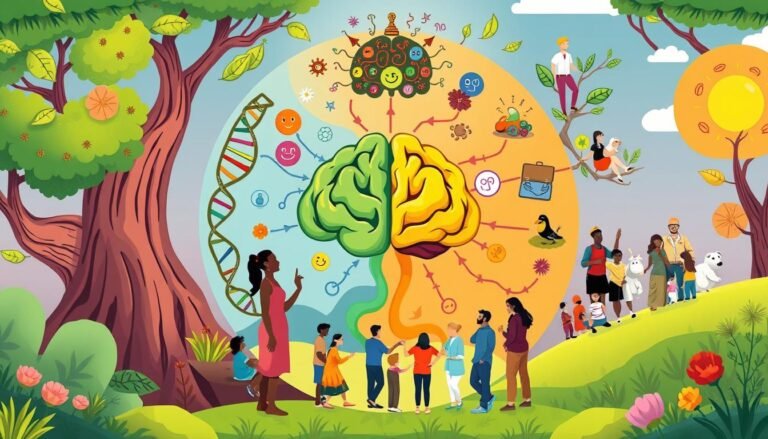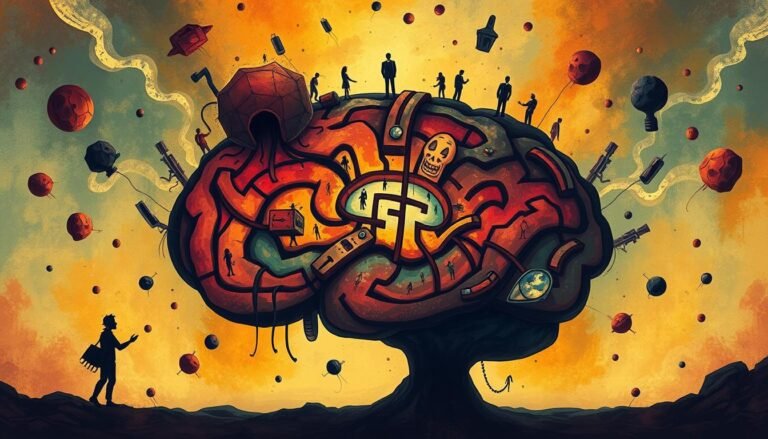Effective Self-Help Strategies for Personal Growth
Have you ever wondered why some people seem to effortlessly achieve their goals while others struggle? The answer might lie in mastering effective self-help strategies for personal growth. This article explores proven techniques that can transform your life and help you reach your full potential.
Self-improvement is a journey that touches many areas of life, from career to emotional well-being. By investing in personal development, you can boost your self-esteem, become more adaptable, and improve your communication skills. Let’s look at some powerful self-help strategies and life coaching tools that can guide you to success.
Setting SMART goals is a key to personal growth. SMART stands for specific, measurable, attainable, relevant, and timely objectives. This method gives you clear direction and motivation. Add techniques like deliberate practice and cultivating a growth mindset to speed up your progress.
Remember, self-improvement is not about being perfect but about continuous learning and growth. By using these personal growth techniques, you’ll be ready to overcome challenges, build resilience, and achieve lasting positive change in your life.
Understanding the Foundation of Personal Development
Personal growth is a lifelong journey that shapes our lives in profound ways. It’s about becoming the best version of ourselves, continuously learning and improving. This process involves various Personal Growth Techniques that help us evolve and thrive.
Defining Personal Growth and Its Importance
Personal growth is the ongoing effort to enhance our skills, mindset, and overall quality of life. It’s crucial for reducing stress and creating a success mindset. By engaging in self-improvement, we open doors to new opportunities and experiences.
The Role of Self-Awareness in Growth
Self-awareness is a cornerstone of personal development. It helps us identify areas for improvement and set meaningful goals. Mindfulness Practices, such as meditation, can boost self-awareness by encouraging us to observe our thoughts and emotions without judgment.
Breaking Free from Comfort Zones
Stepping out of our comfort zones is essential for growth. It involves taking risks and embracing new experiences. This process can be challenging, but it’s key to developing Emotional Intelligence Skills and achieving personal breakthroughs.
“Life begins at the end of your comfort zone.” – Neale Donald Walsch
By understanding these foundations, we can embark on a journey of self-discovery and improvement. Remember, personal growth is a continuous process that requires patience, commitment, and a willingness to learn.
Self-Help Strategies for Sustainable Change
For lasting personal growth, you need good self-help strategies. Use Goal-Setting Strategies and Life Coaching Tools to map out your journey to change.
Setting Clear and Actionable Goals
First, set clear, measurable goals. Break big goals into smaller tasks. This makes progress clear and keeps you motivated.
Creating Effective Daily Routines
Make a daily routine to boost energy and productivity. Stick to regular sleep, eating, and exercise times. This helps your body stay in sync, improving your well-being.
Implementing Habit Formation Techniques
Build new habits by doing them every day. Start simple and add more complexity as you get better. Positive Psychology Exercises can help make these habits last.
| Self-Care Activity | Benefit |
|---|---|
| Transcendental Meditation | Reduces stress, depression, and burnout |
| Proper Sleep | Lowers burnout levels |
| Meaningful Work Tasks | Decreases likelihood of burnout |
Measuring Progress and Adjusting Course
Check your progress often. Be ready for obstacles and setbacks. Remember, self-care is hard work, not just indulgence. Stay adaptable and tweak your plans to keep moving towards your goals.
“Small changes in self-care habits can lead to significant improvements in physical and mental well-being over time.”
Mindfulness and Emotional Intelligence Development
Emotional intelligence is key for success in life and work. Many companies now see EQ as important as technical skills. Developing these skills can make your relationships better, improve communication, and boost your overall happiness.
Mindfulness is a great way to boost emotional intelligence. It helps lower stress, increases focus, and keeps emotions balanced. Studies show mindfulness helps manage emotions better and reduces burnout.
Managing stress is vital for your mental and physical health. Too much stress can cause problems like high blood pressure and a weak immune system. Using good stress management can greatly improve your life quality.
“Being present in the moment enhances social awareness and allows individuals to improve their relationships and emotional intelligence.”
To grow your emotional intelligence:
- Practice self-awareness through journaling or meditation
- Cultivate empathy to foster deeper connections
- Learn emotion regulation techniques like deep breathing
- Improve communication skills to build trust
- Develop social awareness to understand nonverbal cues
Remember, emotional intelligence can be learned at any age. By adding mindfulness and stress management to your daily life, you can improve your EQ. This will help you grow in many areas of life.
Overcoming Obstacles and Embracing Failure
Personal growth means facing challenges head-on. It’s important to understand common barriers and learn to see failure as a chance to grow. By being resilient and staying motivated, you can turn setbacks into valuable lessons.
Understanding Common Growth Barriers
Fear of failure, self-doubt, and resistance to change can hold you back. Recognizing these barriers is the first step to overcoming them. A study by psychologist Carol Dweck shows that a growth mindset can help you believe in your ability to grow through hard work.
Turning Setbacks into Learning Opportunities
Thomas Edison’s story is a great example of persistence. He failed 10,000 times before he succeeded. Seeing setbacks as stepping stones, not roadblocks, is key to personal growth.
Building Resilience Through Challenges
Building resilience is a skill you can develop. It’s about bouncing back from tough times and using challenges to grow. Stress Management Methods can help you handle difficult situations better.
Maintaining Motivation During Difficult Times
Staying motivated when faced with obstacles is vital for growth. Positive Psychology Exercises can help you see setbacks in a positive light. Self-care and getting feedback from others can also offer support and insights.
| Challenge | Growth Opportunity | Resilience Strategy |
|---|---|---|
| Job application rejections | Skill improvement | Reflect on feedback |
| Team performance issues | Leadership development | Seek mentorship |
| Personal setbacks | Self-awareness | Practice self-compassion |
Remember, every setback can teach you something valuable. By seeing challenges as opportunities, you can build resilience and grow personally.
Conclusion
Self-help strategies and personal growth techniques are key to effective life coaching. They help people take control of their own growth. A study with 15 participants showed different therapies like cognitive behavioral therapy and psychodynamic approaches.
A review of 77 studies on self-care for kids and teens showed promising results. While it slightly improved quality of life, its effect on hospital visits was unclear. However, for kids under 13 and those with asthma, it led to fewer emergency visits.
Personal growth is a lifelong journey that needs persistence and flexibility. The data suggests that in-person help from experts and direct involvement can lead to better results. Remember, everyone’s growth path is different, and what works for one might not work for another.
Source Links
- The Beginner’s Guide to Continuous Self-Improvement
- Self Improvement: Achieve Personal Growth | Thriveworks
- Use These Personal Development Strategies for Self-Improvement
- Personal Development: Nurturing Growth and Self-Improvement
- Investing in Yourself: The Ultimate Guide to Personal Development and Self-Improvement
- How To Increase Personal Development In The Workplace To Impact Organizational Success
- The Power of Sustainable Self-Care
- Self-Care Strategies for Work-Life Balance – MUIH
- Improving Emotional Intelligence (EQ): Expert Guide
- The Relationship between Mindfulness and Emotional Intelligence as a Protective Factor for Healthcare Professionals: Systematic Review
- 10 Strategies for Mastering Emotional Intelligence
- Embracing Failure: How to Learn and Grow from Setbacks and Rejections
- From Setbacks to Success: The Art of Learning from Failure
- Frontiers | “We Are All Trying to Find a Way to Help Ourselves”: A Look at Self-Help Strategies Among Psychotherapy Clients
- Discussion and conclusions – Self-care support for children and adolescents with long-term conditions: the REfOCUS evidence synthesis








